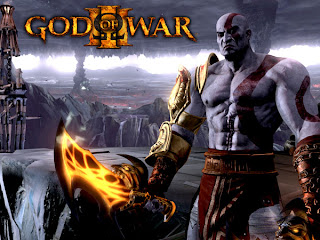SHANGHAI — After three decades of spectacular growth, China passed Japan in the second quarter to become the world’s second-largest economy behind the United States, according to government figures released early Monday.
The milestone, though anticipated for some time, is the most striking evidence yet that China’s ascendance is for real and that the rest of the world will have to reckon with a new economic superpower.
The recognition came early Monday, when Tokyo said that Japan’s economy was valued at about $1.28 trillion in the second quarter, slightly below China’s $1.33 trillion. Japan’s economy grew 0.4 percent in the quarter, Tokyo said, substantially less than forecast. That weakness suggests that China’s economy will race past Japan’s for the full year.
Experts say unseating Japan — and in recent years passing Germany, France and Great Britain — underscores China’s growing clout and bolsters forecasts that China will pass the United States as the world’s biggest economy as early as 2030. America’s gross domestic product was about $14 trillion in 2009.
“This has enormous significance,” said Nicholas R. Lardy, an economist at the Peterson Institute for International Economics. “It reconfirms what’s been happening for the better part of a decade: China has been eclipsing Japan economically. For everyone in China’s region, they’re now the biggest trading partner rather than the U.S. or Japan.”
For Japan, whose economy has been stagnating for more than a decade, the figures reflect a decline in economic and political power. Japan has had the world’s second-largest economy for much of the last four decades, according to the World Bank. And during the 1980s, there was even talk about Japan’s economy some day overtaking that of the United States.
But while Japan’s economy is mature and its population quickly aging, China is in the throes of urbanization and is far from developed, analysts say, meaning it has a much lower standard of living, as well as a lot more room to grow. Just five years ago, China’s gross domestic product was about $2.3 trillion, about half of Japan’s.
This country has roughly the same land mass as the United States, but it is burdened with a fifth of the world’s population and insufficient resources.
Its per capita income is more on a par with those of impoverished nations like Algeria, El Salvador and Albania — which, along with China, are close to $3,600 — than that of the United States, where it is about $46,000.
Yet there is little disputing that under the direction of the Communist Party, China has begun to reshape the way the global economy functions by virtue of its growing dominance of trade, its huge hoard of foreign exchange reserves and United States government debt and its voracious appetite for oil, coal, iron ore and other natural resources.
China is already a major driver of global growth. The country’s leaders have grown more confident on the international stage and have begun to assert greater influence in Asia, Africa and Latin America, with things like special trade agreements and multibillion dollar resource deals.
“They’re exerting a lot of influence on the global economy and becoming dominant in Asia,” said Eswar S. Prasad, a professor of trade policy at Cornell and former head of the International Monetary Fund’s China division. “A lot of other economies in the region are essentially riding on China’s coat tails, and this is remarkable for an economy with a low per capita income.”
In Japan, the mood was one of resignation. Though increasingly eclipsed by Beijing on the world stage, Japan has benefited from a booming China, initially by businesses moving production there to take advantage of lower wages and, as local incomes have risen, by tapping a large and increasingly lucrative market for Japanese goods.
Beijing is also beginning to shape global dialogues on a range of issues, analysts said; for instance, last year it asserted that the dollar must be phased out as the world’s primary reserve currency.
And while the United States and the European Union are struggling to grow in the wake of the worst economic crisis in decades, China has continued to climb up the economic league tables by investing heavily in infrastructure and backing a $586 billion stimulus plan.
This year, although growth has begun to moderate a bit, China’s economy is forecast to expand about 10 percent — continuing a remarkable three-decade streak of double-digit growth.
“This is just the beginning,” said Wang Tao, an economist at UBS in Beijing. “China is still a developing country. So it has a lot of room to grow. And China has the biggest impact on commodity prices — in Russia, India, Australia and Latin America.”
There are huge challenges ahead, though. Economists say that China’s economy is too heavily dependent on exports and investment and that it needs to encourage greater domestic consumption — something China has struggled to do.
The country’s largely state-run banks have recently been criticized for lending far too aggressively in the last year while shifting some loans off their balance sheet to disguise lending and evade rules meant to curtail lending growth.
China is also locked in a fierce debate over its currency policy, with the United States, European Union and others accusing Beijing of keeping the Chinese currency, the renminbi, artificially low to bolster exports — leading to huge trade surpluses for China but major bilateral trade deficits for the United States and the European Union. China says that its currency is not substantially undervalued and that it is moving ahead with currency reform.
Regardless, China’s rapid growth suggests that it will continue to compete fiercely with the United States and Europe for natural resources but also offer big opportunities for companies eager to tap its market.
Although its economy is still only one-third the size of the American economy, China passed the United States last year to become the world’s largest market for passenger vehicles. China also passed Germany last year to become the world’s biggest exporter.
Global companies like Caterpillar, General Electric, General Motors and Siemens — as well as scores of others — are making a more aggressive push into China, in some cases moving research and development centers here.
Some analysts, though, say that while China is eager to assert itself as a financial and economic power — and to push its state companies to “go global” — it is reluctant to play a greater role in the debate over climate change or how to slow the growth of greenhouse gases.
China passed the United States in 2006 to become the world’s largest emitter of greenhouse gases, which scientists link to global warming. But China also has an ambitious program to cut the energy it uses for each unit of economic output by 20 percent by the end of 2010, compared to 2006.
Assessing what China’s newfound clout means, though, is complicated. While the country is still relatively poor per capita, it has an authoritarian government that is capable of taking decisive action — to stimulate the economy, build new projects and invest in specific industries.
That, Mr. Lardy at the Peterson Institute said, gives the country unusual power. “China is already the primary determiner of the price of virtually every major commodity,” he said. “And the Chinese government can be much more decisive in allocating resources in a way that other governments of this level of per capita income cannot.”
Wealth is a subjective concept, but one thing is universal in most definitions: being able to live a comfortable life without having to work.
"I'd like to have enough money so my family and I wouldn't have to work anymore or worry about the necessities, and maybe travel a bit," said Deborah Veale, a Southern California resident visiting New York City.
Veale said she'd need about $10 million to consider herself set.
One woman from Seattle put it at a "couple thousand dollars a month." Another from New York City wanted a billion (although she'd still fly coach.)
Experts peg the figure to be somewhere around $2 million to $12 million in savings.
On the high end of that range, a single person living in an expensive part of the country (say, New York City), wanting to retire at 35 would need at least $300,000 a year to feel rich, according to Steven Kaye, president of Watchung, N.J.-based wealth management firm American Economic Planning Group. He based that number on real-life figures his clients tell him they need.
A yearly income of $300,000 would allow for taxes, a $3,800-a-month apartment (the average price in Manhattan), and a monthly spending allowance of around twelve grand, he said. Not too bad, especially since you could do this all without a pesky job.
To generate $300,000 a year beginning at age 35, you'd need a nest egg of just under $12 million. That assumes a conservative investment portfolio generating a return of 5% a year, an inflation rate of 2.5% a year and Social Security benefits of $25,000 a year starting at age 62.
Over time, the shape of your nest egg would resemble a bell curve, growing in the early years, and then declining as inflation required you to withdraw more money to maintain a lifestyle equivalent to $300,000 in 2010. The $12 million would finally dwindle to $934 when you turned 100.
If you live in a low cost part of the country, $100,000 a year should be enough, said Kaye. In that case, you would need savings of about $4 million to retire at 35.
But if you're willing to stay in the workforce until age 65, a mere $2 million would be enough.
Jon Duncan, a financial planner at Tacoma, Wash.-based Seneschal Advisors, gave numbers similar to Kaye's, and agreed that for most people, the figure would be somewhere in the multi-millions.
"I'm from an era when we'd talk about millionaires and say 'Whoa, he's got it made for life,'" said Duncan. "But that's not the case anymore."
Indeed, few experts think a million is enough to quit your day job.
"Don't retire at 35," he advised this reporter, "you'll need a ton of money."
Keeping Up With the Joneses
Of course, there are other ways of determining wealth besides just what you'll need to live well in retirement.
Although decidedly not recommended by financial planners, one is relativity. Basically, you're rich if you're making more than your brother-in-law.
That appears to be how the government measures affluence. The Obama administration wants to extend tax cuts for all but the wealthiest Americans, which it defines to be those families making more than $250,000.
But that only includes about 2% of the population, according to the Census Bureau.
Kaye cautions not to confuse wealth with income. Some people can make a million a year, but be spending a million and a half. They are not rich, said Kaye.
"Income relates to lifestyle," he said. "Wealth relates to balance sheets."
From Mario Galaxy 2 to Red Dead Redemption, the first half of 2010 has been packed with impressive games. But which of the year’s releases have impressed consumers...and which 2009 games are they still buying? Here, according to retail sales tracking firm NPD, are the ten best-selling games of 2010 so far.
#1: New Super Mario Bros. Wii (Wii)
It might have come out last year, but this classic Nintendo platformer is still a hit with consumers. Not only is it outselling new Mario hotness Super Mario Galaxy 2, it’s outselling everything else as well. Congrats, Mario: you’re the top-selling game of 2010 so far. Have a gold star.
#2: Pokemon SoulSilver (DS)
Pokemon’s one-two assault on the year’s charts finishes up with a second-place spot for SoulSilver. But combine the sales of both versions, and it’d easily be sitting in the number-one slot.
#3: Red Dead Redemption (Xbox 360)
One of the year’s big sales surprises, Rockstar’s sweeping cowboy epic has already cracked the two-million mark – and its Xbox 360 version is the third best-selling game of the year so far. Maybe that’ll finally put a smile on the morose mug of its long-suffering star.
#4: God of War III (PlayStation 3)
Kratos’s 2010 sales performance might not quite be as godly as some others, but we’re sure Zeus is smiling at God of War III’s healthy showing.
#5: Wii Fit Plus (Wii)
Nintendo’s fitness powerhouse is unstoppable: by now well over 10 million consumers are sweating it out with Wii Fit Plus. That’s a lot of lost weight.
#6: Wii Sports Resort (Wii)
Pairing a souped-up version of classic Wii Sports together with the excellent MotionPlus peripheral was a winning move for Nintendo last year -- and it’s still bowling strikes in 2010.
#7: Pokemon HeartGold (DS)
It’s easy to underestimate the enduring popularity of the Pokemon franchise, but HeartGold is this year’s seventh best-selling game so far. And its stablemate, SoulSilver, didn’t do too badly either. Stay right there, Pokemon – we’ll be coming back to you.
#8: Call of Duty: Modern Warfare 2 (Xbox 360)
Plenty of gamers are still looking to answer this call: despite smashing records at its 2009 release, the Modern Warfare 2 money machine shows no signs of slowing down in 2010.
#9: Just Dance (Wii)
Coming from nowhere to be one of the Wii’s biggest hits, Just Dance is still going strong. Expect to see a lot more of that name over the next few years.
#10: Super Mario Galaxy 2 (Wii)
Starting at number 10, Mario Galaxy 2 might be one of the best-reviewed games of all time, but it’s off to a little bit of a slow start. All the same, its estimated sales are north of a million copies... and we get the feeling that isn't the only Mario we'll see on this list.
